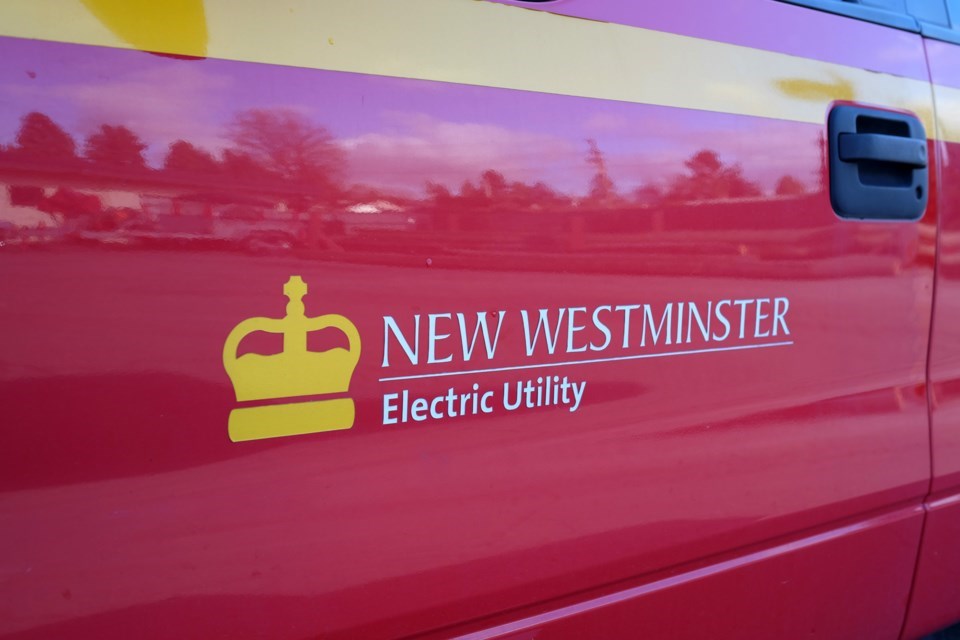New Westminster city council has asked the electrical commission to consider a rate structure that could make power more affordable for folks on a low income.
Council unanimously approved a motion from Coun. Nadine Nakagawa to ask the electrical commission to explore piloting a program to provide rates geared to income for low-income community members.
“We know that affordability is a real issue. It has been for a number of years,” Nakagawa said. “It is getting worse, and we want to make sure that our programs are fair. And for me, fair means equitable rates, wherever that is possible.”
Nakagawa said she’s looking forward to seeing what the electrical commission can come up with in terms of creating a program that might have different tiers for people.
“So, if people are on low-income, if they are struggling, having opportunities for them to pay lower hydro rates based on their income,” she said. “I think this is very aligned with the city’s values and our strategic priorities.”
Coun. Daniel Fontaine said the motion speaks to two tiers for income, but it doesn’t address two-tiered usage of those who are higher electricity consumers versus lower electricity consumers.
“The motion, as it stands right now, I am prepared to support it; I don’t have a problem with it. But I just don’t think it goes far enough,” he said. “We have a system with BC Hydro that provides incentives for people to consume less and charges more for those who use and consume more electricity. We do not have that in the City of New Westminster.”
Fontaine proposed an amendment to Nakagawa’s motion, which would have the electrical commission explore implementing a two-tiered fee structure based on usage, similar to BC Hydro.
“With that amendment, were it approved, we would be similar to BC Hydro in providing automatic incentives for those who consume less and be able to charge more to those who are heavier users of the electrical system,” he said.
In a 4-3 vote, council approved Fontaine’s amendment. It was supported by Fontaine, Mayor Patrick Johnstone and councillors Jaimie McEvoy and Paul Minhas, but it was opposed by councillors Ruby Campbell, Tasha Henderson and Nakagawa.
“I think that’s quite a different spirit than what the motion is,” Nakagawa said. “We also know that people who are low-income sometimes have less opportunities to find energy savings within their daily lives. So, if you own your own home, for example, you may be able to update systems that have energy savings. The whole point is that people who are low-income don’t always have those opportunities.”
Nakagawa said she would like to incentivize consuming less energy, but feels that’s quite different from the intent of her motion.
Johnstone said could support the amendment to have the electrical commission add that work to its analysis as part of the discussion on rate changes.
“I know this has been a conversation the electrical commission has already had a couple of times on the idea of two-tiered pricing, or pricing based on amount of consumption,” he said. “I think it is a separate piece of work than the work about talking about equity and providing opportunities for people with very low incomes to receive a little bit of a discount on electricity, but I think it’s fine to refer these to the electrical commission.”
According to Johnstone, BC Hydro has been “somewhat back and forth” about whether it is going to continue with its two-tier pricing.
Rod Carle, general manager of the city’s electrical, said BC Hydro is reconsidering its two-tier pricing system.
“When Hydro looked at rates for low income, they couldn’t get a consensus from all their intervenors,” he added. “So they actually ended up doing a two-year pilot on a crisis fund, and the crisis fund applied to all residents, not just low income. There was a certain set of criteria that all customers had to follow before they could actually get relief from Hydro from the crisis fund.”






